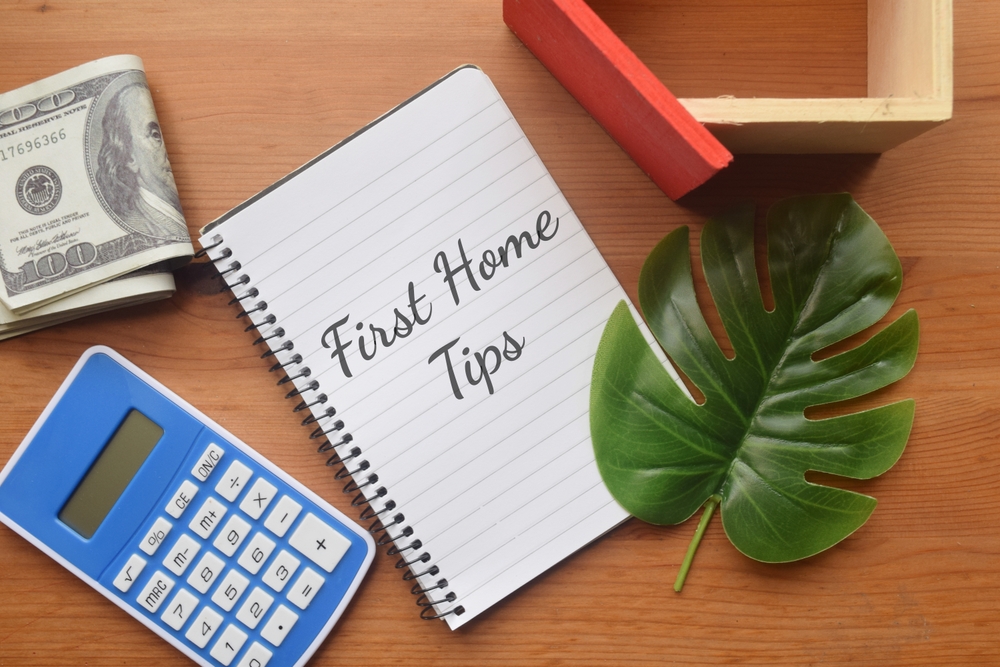Does this sound like you?
After years of endless waiting, driving through beautiful neighborhoods, and saving the funds for your down payment, you’ve decided that 2023 is the year you’ll purchase your dream home. Lucky for you, you’ve found the perfect community with an excellent builder and a real estate agent that understands your needs. Despite your due diligence, the questions you’ve compiled to ask the internet keep growing: What home loans do I qualify for? Where can I find a trusted professional for my home inspection? What fees are included in the closing cost?
Buying your first home is an exciting experience encompassing many stressful and financial choices. That’s why Tower Homes is here to help answer all of your first-time homebuyer questions wherever you are in the process. We know and understand that this process can be exciting but intimidating, so we’re always here to help educate our buyers and empower them with the knowledge they need to be successful.
Popular First-Time Homebuyer Questions
-
Am I ready to purchase my first home?
Only you can answer this question honestly. Think about all the responsibilities homeowners must take on. If you have a leaky roof, a busted water pipe, or a hole in the wall, you have to use your own money to repair it. You’ll also be on the hook for the upkeep, including paying property taxes, lawn care service, and insect extermination. Before you start the homebuying process, make sure you create a budget that compares all of your expenses before and after you buy your home so you’re informed and prepared for the big change!
-
Is my credit score high enough to qualify for a home?
When it comes to buying real estate, your credit score is one of the major determining factors banks use to decide whether you’re a reliable person to approve a home loan. Your credit score is calculated by several factors, including repayment history, types of loans, length of credit history, debt utilization, and whether you’ve applied for new accounts. First-time homebuyers are advised to have a credit score of 620 or higher to receive a conventional loan. If your score is below a certain number, lenders may offer you a higher interest rate (which results in higher monthly payments), require a higher down payment, or reject your loan application. If your score is considered too low, there are mortgage programs that offer FHA loans designed to help people with lower credit scores purchase homes.
-
How do I find a knowledgeable buyer’s agent?
It can be difficult to determine whether or not a real estate professional is the right fit for your family and understands not only your needs but the communities within their focus area. In our state, there are many practicing real estate agents in the metro Birmingham area that are happy to take on a new client. Finding an agency and an agent that works well with your family is a personal process. Be sure to read the contract thoroughly before signing and ask questions about any associated fees, appointments, and other important information you need to know.
-
Can you buy a house with no down payment?
Many people have heard this tell-tale advice from well-meaning family members, friends, and colleagues– “Save 20% of the home’s price for your downpayment! That’s the best way to do it.”
However, what they don’t tell you is that’s just a portion of some of the costs you may acquire. Appraisal fees, earnest money, home inspections, and closing costs are also a part of the transaction. These payments range in value depending on the home you buy and the neighborhood/city in which you live. The fees ensure your realtor is paid, your home is in good condition, and the value of your home is relative to the amount you are paying for it.
So, the answer to the question is “Yes,” but there are some considerations. Receiving a government-backed loan is one way to get a zero-down payment mortgage. There are two types of government-sponsored loans you can receive. VA loans and USDA loans allow you to buy a home without a down payment. Each of the two loans has a specific set of criteria you must meet to qualify, such as being a U.S. citizen, serving in the U.S. military for a certain number of years, or moving to a rural/underdeveloped area of the country.
-
How do I determine if the home I find is a good investment?
There are a few things first-time homebuyers can research to feel more confident about their new home investment. One of the safest ways to invest in a new home is to invest in an area with an excellent school district. You can always do a deep dive into a school district by looking at its website and even attending a school board meeting to learn more about the challenges the district may be facing and any upcoming improvements they are focusing on. Even if you don’t plan on having children of your own, make this step a priority because it may be important for future homebuyers to consider if you ever decide to sell your home.
Another way to decide if you’re making a good investment is to buy a house in an area with transportation options. Easy and accessible commutes to work and school are at the top of many homebuyers’ wish lists. Whether driving a car, riding a bike, taking public transportation, or walking, commute time is an important factor when choosing a location for a new home. Consider the resale value if you live in a walkable area or a community close to the nearest train station or bus stop. This could be a major selling point in the future!
Being near local amenities has a significant impact on home prices. Most buyers want to live within 5-10 minutes of their favorite grocery stores and shopping centers. Also, living near a few top-rated restaurants and unique entertainment options is important for those who like to seek entertainment outside of the home. If the location of the home you’re buying is within a few miles of these sought-after locations, it will help raise your property value and entice interested buyers who want to live and invest in your community.
-
Is a 15-year or 30-year mortgage the better choice?
The ‘life of the mortgage’ debate has been going on for decades, but truthfully, there are pros and cons to both arguments. Homebuyers often prefer 30-year fixed-rate mortgages because they offer the lowest stable monthly payment for the life of the loan. However, a 15-year mortgage will allow you to repay your loan faster. If you can afford the higher monthly payment, switching from a 30-year to a 15-year term can save you thousands of dollars in interest. You can also pay a 30-year mortgage at the 15-year mortgage cadence and payment – and the extra amount paid will get directed to reducing the principal amount and not go towards paying the accumulated interest. This allows you to get ahead if you’re in a period of making extra money but fall back to the contracted 30-year payment when lean times present themselves, and you’re no longer able to make a higher payment. Also, don’t forget you can always refinance your loan later if you want to change the loan requirements.
-
What’s the difference between a mortgage pre-qualification and a pre-approval?
Learning the difference between these terms will guide your home search and allow you to focus solely on homes that fit within your budget. Pre-qualification means a lender receives financial information from you to estimate the cost of a house you can afford. Since this process relies on self-reported information, this leaves you with an estimated range rather than a firm amount. A mortgage pre-approval is an official process and requires documentation, including pay stubs, tax returns, and your Social Security card. Receiving a pre-approval adds more credibility to your purchase offer, so the seller can rest assured you will receive the loan amount to buy the house.
-
How do I prepare for my real estate closing?
For first-time homebuyers, the closing is the moment they’ve been waiting for. This is the day they can officially take over property ownership, receive the keys, and settle in. You can expect to meet with your realtor and the homebuilders’ realty team to ensure all documents have been signed and sealed, final questions are answered, and a final walk-through of the property is completed. Make sure you’re also payment-ready and can write a check for closing costs and any other remaining fees if that applies to you.
-
What should I do after I move in?
Congratulations! You’re finally a homeowner! This is an important milestone, and you can celebrate by moving your belongings in and enjoying your space. Consider doing these important tasks so getting comfortable is easy: deep clean the home, change house locks, update your address, transfer utilities (water, gas, electricity, trash collection), set up an internet connection, and update all important documents. If you want to go the extra mile, we suggest meeting your neighbors and exploring the community. A quick, friendly wave and a few short conversations might be all you need to do, and it’s important to know the people around you who are also dedicated to keeping the neighborhood safe.
Tower Homes is dedicated to educating our buyers about the real estate market, our vibrant communities, and the first-time home buyer process. Contact an agent today for more information about our available move-in ready homes. We wish you a happy home-buying experience!









